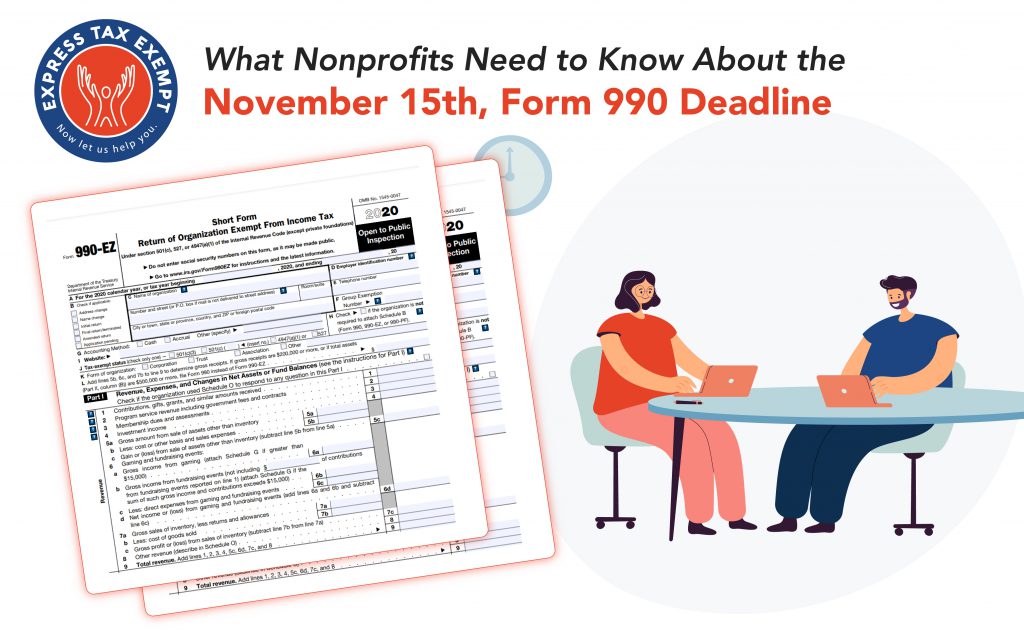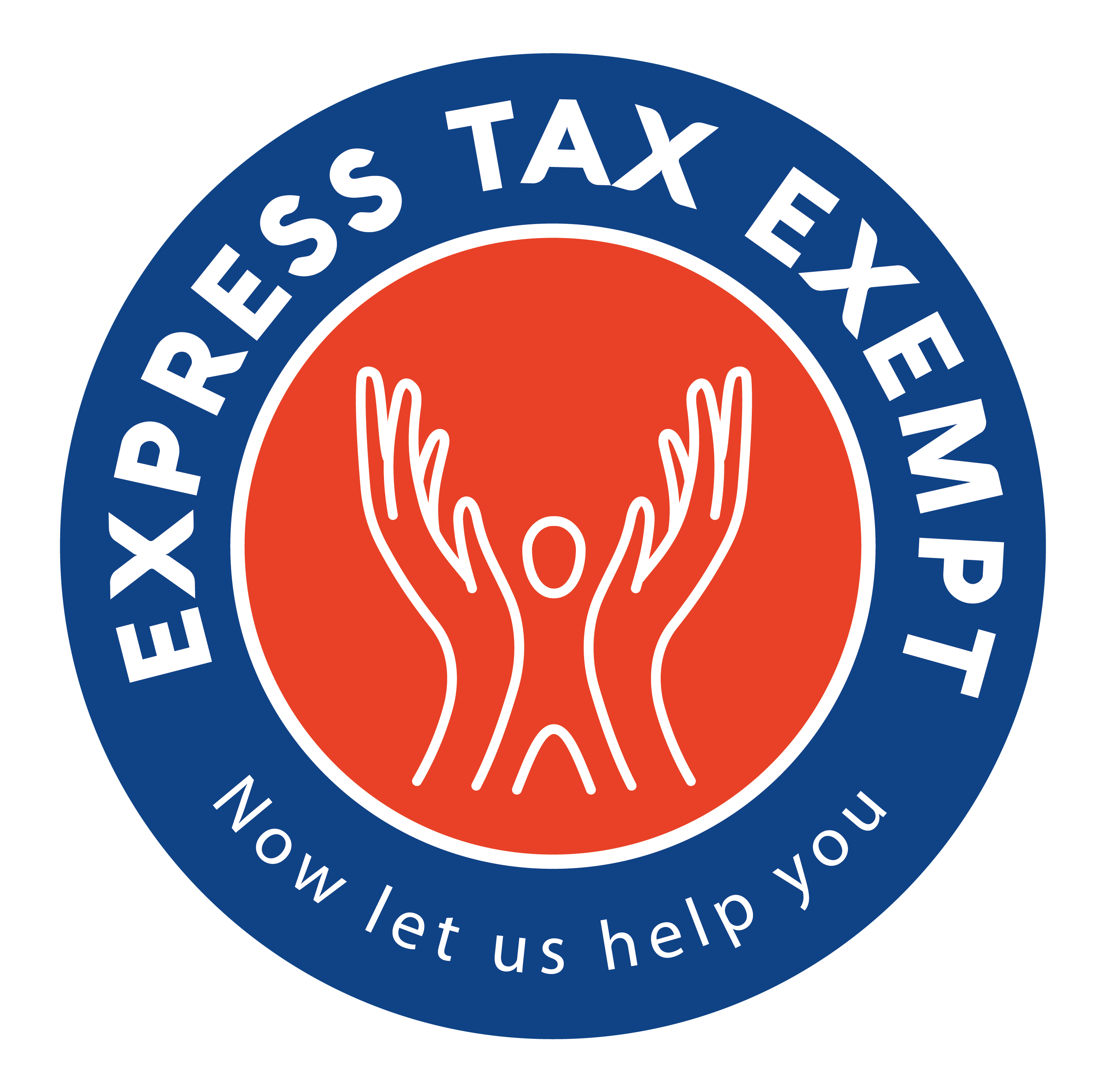What Tax Exempt Organizations Need to Know About the November 15th, 990 Series Deadline

Almost all tax-exempt and nonprofit organizations are required to file an annual information return. Based on the gross receipts an organization can choose to file either Form 990, 990-EZ, or 990-N. Another 990 series Form an organization may be required to file is Form 990-PF.
November 15th is one of the most common deadlines for 990 series Forms and it’s only a few weeks away! That means it’s time to start preparing for the deadline and filing your organization’s return. With the help of ExpressTaxExempt, your filing will be stress-free and simple.
Here’s what your organization should know about the November 15th 990 series deadline:
Is My Organization Required to File?
An organization’s 990 series return is due on the 15th day of the 5th month after the end of the organization’s fiscal year. Considering organizations have different tax year-end dates, they will also have different 990 series deadlines. Organizations that are required to file a 990 series form by November 15th, 2021 include:
- Organization’s whose tax year ended on June 30th, 2021
- Organization’s whose original filing deadline was May 15th, but filed Extension Form 8868 and received a 6-month deadline extension
Which Form Do I Need to File?
There are multiple 990 series forms and there are specific guidelines regarding which form an organization needs to file.
Form 990 is typically filed if an organization has gross receipts greater than or equal to $200,000 or total assets greater than or equal to $500,000 at the end of their tax year.
Form 990-EZ is typically filed if an organization has gross receipts of greater than $50,000 but less than $200,000 in total assets at the end of the year less than $500,000.
Form 990-PF is typically filed by Exempt & Taxable Private Foundations as well as Non-Exempt Charitable Trusts which the IRS treats as private foundations.
Form 990-N(e-Postcard), is typically filed if an organization has gross receipts of $50,000 or less. Organizations can also voluntarily file Form 990 or 990-EZ instead of Form 990-N.
Form 8868 is filed by organizations that are unable to file their original return by the deadline. If an exempt organization files IRS Form 8868, they typically receive a 6-month extension for their 990 series deadline. This form must be filed on or before your 990 series deadline date.
ExpressTaxExempt supports e-filing of Form 990, 990-EZ, 990-PF, 990-N, CA 199, 1120-POL, and extension Form 8868. If you are still unsure which 990 series Form your organization needs to file, you can use our Form 990 Finder. Simply scroll through the organization types, select the one that applies, and follow the prompts to see which form is commonly filed. As an IRS-authorized e-filing provider, ExpressTaxExempt helps make filing user-friendly and secure.
How Do I File A 990 Series Form?
Now that the IRS has mandated e-filing for 990 series returns, your organization will need to file electronically. Luckily, e-filing is quick and simplewith ExpressTaxExempt. ExpressTaxExempt offers beneficial features that ensure your filing process is convenient and efficient.
To e-file with ExpressTaxExempt, follow these simple steps:
- Create your account here
- Enter the organization’s EIN
- Choose the tax year and form you need to file
- Input the required information
- Review and edit the form as needed
- Transmit the form to the IRS
Are There Penalties if I Don’t File On Time?
If an organization doesn’t file its 990 series form on time, it may be subject to penalties from the IRS. If the organization doesn’t provide a reasonable cause for filing late, these penalties can increase daily.
If an organization fails to file its 990 series form for three consecutive years, the IRS may automatically revoke its tax-exempt status. If this happens, the organization must pay income taxes until they can get their tax-exempt status reinstated.
ExpressTaxExempt
The November 15th 990 series deadline will be here before we know it! File your return now with ExpressTaxExempt to maintain your organization’s tax-exempt status and avoid penalties from the IRS!



